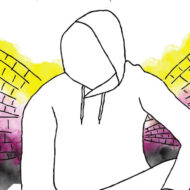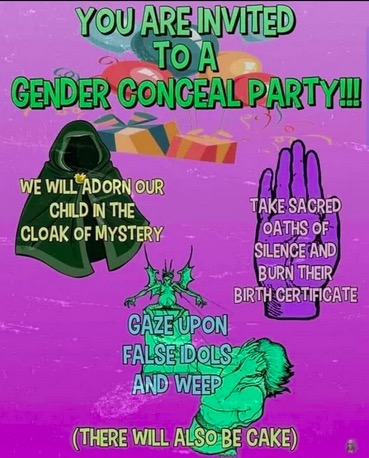Did you learn how to love, when you were a child?
Did you learn how to be loved?
Did you learn it later in life?
Who taught it to you?
Personally, I try to avoid young people as good as I can. To me, the queer people I liberated are my children; those who dared to come out of the closet because they saw it work for me. I love you, and I hope you spread the love all over the planet.
When and how we learn how to love depends on the teachers, propably. Some of these lessons were taught by my parents, sure. They misunderstood a lot about me, but they got a lot right, too – loving is about being human, after all, not about being man or woman.
I learned a lot through my friends, when we tried to make loving relationships work on eye level – and failed as often as not. But you need to try, right? And it gets easier, the older you become.
The world doesn’t change because people change their minds, but because old people die at some point.
Not sure how seriously that sentence is meant to be. But it implies that only young people are flexible enough that it makes a difference what they think. Not fitting in all the boxes when I was a child certainly formed who I am today and which battles I still fight – even though no teacher tries to force me to do sports anymore.
So what about the children of tomorrow? Is this our responsibility? The anti-natalists say no, it’s better not to be born at all. Not everyone has that choice though. Accidents happen, familys break apart, and there are many children out there who need people who care for them. Many of them are non-binary. And they’d probably rather have parents who understand that part of them (which doesn’t mean that cis people can’t do that right though).
If you are not a pure cynicist and/or hate yourself (perfectly valid positions of course), you might want to spread your DNA your personality and values to other people who might cherish it. And children might be worth the trouble.
You are a valid enby, whether you feel the urge to have children or not.
For non-binary people, becoming/being parents often means a lot more trouble than for cis people. For many, the natural way is a huge source of dysphoria. For cis women it’s already pretty hard, and they have a created a complex variety of support structures, but also peer pressure to deal with becoming pregnant. For non-binary parents, the whole pregnancy stuff is much more scary, as all the narratives and identities about parenting shine in bright pink & blue.
There are some who prove strength by subverting this and being pregnant enbies or fathers. Some of them feel bodily dysphoria, going through the changes of pregnancy, some do not. After birth, breastfeeding can be a source of dysphoria, too – but there are alternatives to breastfeeding. And if you consider this, you probably don’t need this zine to tell you what’s possible and what isn’t.
There are other options to the natural way, of course. There are already many children out there who have no one to care for them – why make new ones then? Adopting children is not always easy; as a pre-convicted radical leftist who is against monogamy, I will probably never have the chance to adopt anyone. Apart from that, the bureaucracy can be scary, and not every country allows adoption for queer-presenting couples.
An easier way might be foster care. Depending on the country you’re in, it’s even possible for single persons to foster children. In any case, you need to do your own research, as the situation depends highly on local laws and your personal situation.
How many parents are too many?
There is one radical option, which doesn’t necessarily involve the state, bureaucracy, and all that bullshit. For many leftist parents, the prospect of raising kids as a traditional couple is not very appealing, even if they are cis and straight; so there are various approaches to collective parenting.
Some parenting collectives live together, some don’t – having more people doing the parenting just increases the flexibility, after all. So there are more opportunities of figuring out how to cover everyone’s needs, not less. So getting involved with others (who trust you enough and) who are about to have children/are already struggling with them might be an option.
One problem you might accidentally help solving: the problem that so many radical leftists drop out of activist circles as soon as they become parents. Most radical projects are pretty bad in accomodating parents, and are focusing on university students, broke punks, or the broletariat as a target group for mobilization. So there are many solidarity partys, but not so many solidarity crews where you can drop off your children before you go to a protest or action.
Collective parenting needs a lot of trust though, and strong communal bonds. Raising children takes some years, after all, and you want your friendships last through this. Don’t take this lightly – many marriages don’t manage this. And arguing who gets the children is hard enough if only two people are involved.
But maybe it is worth the challenge.

